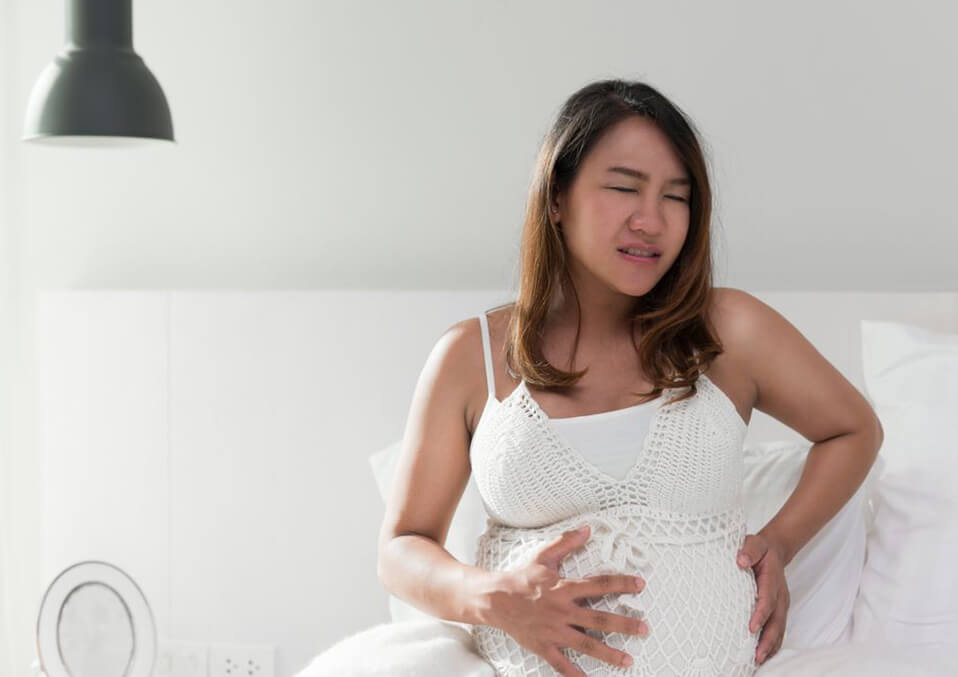
What is a blood clot and why does it happen?

The blood clot or known medically as thrombosis, it is a condition wherein the body sends signals to the brain to create a chunk of blood cells that accumulate a certain part of the body and it has changed from a liquid to a semi-solid state, a blood clot can happen in many areas such as veins, arteries, muscles and of course placenta.
A blood clot is a vital mechanism that prevents the affected organ from losing blood, a blood clot in the placenta simply means that a blood clot has been in your placenta for quite a while now and it can be because of a number of reasons.
What causes blood clots in the placenta?

Based on the studies, pregnancy and conception is the main cause of blood clots specific in the placenta area.
Blood clots in the pregnant woman’s placenta are very common during this time, this is a condition that happens during pregnancy and most women experience this without any complications, however, there are still exceptions, that why it is advised for a pregnant mother to have weekly and if not regular maternal checkups especially if the pregnancy is sensitive.
Read also: All you need to know about ear popping during pregnancy
Blood clots forming around the placenta are due to the mechanism of the woman’s body during labor and birth as blood clots continually decrease the amount of blood loss during those excruciating moments.
Blood flow in certain parts of the woman’s body such as the thighs, feet and legs decreases. This is due to the blood vessels around the woman’s pelvis and other parts become more narrow and all the blood flow goes through the uterus which is essential in child labor.
Are blood clots in the placenta area dangerous?

The uterus needs proper supply of oxygen through the blood flow that gets into it, the food nutrients and oxygen usually flows into the umbilical cord to the baby and a blood clot in a placenta could result in the inhibition of the blood flow which could result in the improper growth and development of the fetus.
Blood clots in the placenta are some of the complications that can happen during pregnancy and it needs proper medical attention immediately.
What time during pregnancy does usually blood clots inside the uterus happen?
Blood clots are a normal condition during and after the pregnancy period, although blood clotting is more common in women who have given birth after 6 weeks.
Who are at risk of having complications in blood clotting aside from pregnant women?
Certain people are more likely to get blood clots and have more risks and complications due to developing one, factors include:
- The genetic factor of the family, having blood clots inside the body can be a genetic trait that is passed down from generation to generation
- Blood clotting related diseases and conditions such as obesity, diabetes, chromosomal abnormality, thrombophilia, disseminated intravascular coagulation and high blood pressure, these diseases could make a person more prone to blood clots than usual.
- Post-surgical trauma from past heavy surgeries
- Being in dehydrated and over time creating a water imbalance in the body
Read also: Perks of girls getting knocked up abroad
- Insufficient body movements of a person or a general lack of exercise and an active lifestyle for a long period of time could result in blood clumping up in different parts of the body
- Taking blood clot inducing pills or birth control pills, studies have shown that it increases the risk of blood clotting
- Smoking is a very unhealthy habit that could lead to premature death and a lot of degenerative cancers, smoking is also proven to induce blood clotting as it destroys the lining blood vessels which can be the main site for the active form of a blood clot
How can blood clots in the placenta be detected?
There can be several tests done by a doctor to detect if you have blood clots during your pregnancy because many of the blood-clotting proteins can be present during the pregnancy period.
Doctors will usually test the patient’s blood level through blood sampling, an MRI image scanning or ultrasound scan can also detect blood clots during pregnancy.
How to prevent blood clots in the placenta area from forming?
Blood close in the placenta area during pregnancy can pose harm to the baby, with that said, there can be ways in order to prevent such complications from happening, here’s how:
- Consult the doctor, the doctor may refer you to a dermatologist or maternal medicine specialist, the licensed physician may prescribe you medicine to take or you may get a daily shot of heparin, a blood-thinning agent that prevents and destroys the blood clot
- Be physically active even if you’re pregnant, always try low-intensity fitness activities such as walking, stretching or you may consult the doctor to give you advice on what exercises are safe and effective
- Wear loose-fitting clothes, socks or stocking, or clothes that are suited for pregnant women
Read also: Vomiting during pregnancy
- Take Vitamin B6 and Magnesium supplements, always remember to tell your doctor about the vitamins you’re taking although these two supplements started above can have a positive impact on the prevention of blood clotting in the placenta and other areas of the body
- Eat a healthy and balanced diet consisting of good carbohydrates, low-fat meat protein, fruits and vegetables that are rich in vitamins and minerals
- Try to minimize salt and sugar intake, these things could potentially aggravate the present blood clotting in the placenta or other parts of the body.
Final notes
Blood clots are a serious problem even more so when a person is experiencing or going through pregnancy, the preventive measures mentioned above are extremely effective in minimizing the occurrence of blood clotting.
Always remember that the best prevention of any complications during pregnancy including blood clotting in the placenta is a healthy lifestyle, from being physically fit, maintaining your balanced diet and being mentally well will do well with the pregnancy stage.
Also important to take note, contacting a healthcare provider is a must and a vital core of having a healthy pregnancy, especially if the woman feels significantly different or feels that something is wrong with her body.
Read also:
- Safety Measures of Anal Sex During Pregnancy
- What to Expect on the Last Two Weeks of Pregnancy
- Pregnancy Symptom: Reasons why Pregnant Women Snore


